ডঃ মিজান রহমান (১৯৩২–২০১৫) একজন বাংলাদেশি-কানাডিয়ান গণিতজ্ঞ, শিক্ষক এবং প্রাবন্ধিক ছিলেন। তিনি ঢাকায় জন্মগ্রহণ করেন এবং ঢাকা বিশ্ববিদ্যালয় থেকে পদার্থবিজ্ঞান ও প্রয়োগিক গণিতে বিএসসি ও এমএসসি লাভ করেন। পরে কেমব্রিজ বিশ্ববিদ্যালয় থেকে এমএ (গণিত) এবং ১৯৬৫ সালে কানাডার ইউনিভার্সিটি অব নিউ ব্রান্সউইকে “কাইনেটিক থিওরি অব গ্যাসেস অ্যান্ড প্লাজমাস ইউজিং সিঙ্গুলার ইন্টিগ্রাল ইকুয়েশন টেকনিক্স” নিয়ে পিএইচডি সম্পন্ন করেন।
ডঃ রহমান ১৯৬৫ থেকে ১৯৯৮ পর্যন্ত কানাডার অটাওয়ায় কার্লেটন বিশ্ববিদ্যালয়ে অধ্যাপক হিসেবে কর্মরত ছিলেন এবং অবসর নেওয়ার পর প্রফেসর এমেরিটাস হন। তার গবেষণার ক্ষেত্রে হাইপারজিওমেট্রিক সিরিজ, অরথোগোনাল পলিনোমিয়াল এবং বিশেষ ফাংশন নিয়ে গুরুত্বপূর্ণ অবদান রয়েছে, বিশেষ করে জর্জ গ্যাসপার-এর সঙ্গে যৌথ কাজের মাধ্যমে।
গণিতের পাশাপাশি তিনি দর্শন, সাহিত্য, শিল্প, সংগীত, রাজনীতি ও যৌক্তিকতায়ও ব্যাপক কাজ করেছেন। তিনি বাংলা ও ইংরেজি উভয় ভাষায় লিখেছেন এবং মুক্তমনা, কারমারা ও পরবাসের মতো বিভিন্ন ব্লগ ও মিডিয়াতে শিক্ষা, মানবিক মূল্যবোধ ও সামাজিক দায়িত্ব নিয়ে অবদান রেখেছেন।
💬 প্রশ্নোত্তর:
প্রশ্ন: স্বাগত, ডঃ মিজান রহমান – আপনার জন্মস্থান, শৈশব এবং শিক্ষাজীবন সম্পর্কে বলুন।
উত্তর: আমি ১৯৩২ সালে ঢাকার একটি ভাড়াঘরে জন্মগ্রহণ করি। প্রাথমিক শিক্ষা মা’এর কোলে শিখেছি, পরে সরকারি মুসলিম হাই স্কুলে তৃতীয় শ্রেণিতে ভর্তি হই। আর্থিক সীমাবদ্ধতা থাকা সত্ত্বেও ছাত্রবৃত্তি ও বিশেষ তহবিলের সাহায্যে আমার শিক্ষা অব্যাহত রাখা সম্ভব হয়। আমার সবচেয়ে জীবন্ত শৈশবের স্মৃতি হল ১৯৪৩ সালের দুর্ভিক্ষ, যা আমার চরিত্র ও জীবন দর্শনে গভীর প্রভাব ফেলে।
প্রশ্ন: আপনি একজন পিতা। আপনার সন্তানের শৈশবে কোন বিষয়টি সবচেয়ে বেশি মিস করেন যা আপনার নিজের শৈশবে ছিল?
উত্তর: দাদাদাদির স্নেহময় ভালোবাসা, যা আমার ছেলেরা পায়নি।
প্রশ্ন: আপনার পরিবার ও সন্তানের পেশা সম্পর্কে বলুন।
উত্তর: বড় ছেলে বাবু মেকানিক্যাল ইঞ্জিনিয়ারিং-এ চলে এবং ক্যালিফোর্নিয়ায় স্থায়ী জীবনযাপন করছেন। ছোট ছেলে রাজা ক্লাসিক্যাল পশ্চিমা সংগীতে জুইলিয়ার্ডে পড়েছেন; তার পেশা অস্থির এবং অবিবাহিত, তবে তিনি তার আবেগের পথে এগিয়ে যাচ্ছেন।
প্রশ্ন: সন্তানদের জন্য সম্পদ জমা রাখা কি ভালো?
উত্তর: না, ধন জীবনের জন্য প্রোডাক্টিভিটি বাড়ায় না। আমার কোনও সম্পদের আকাঙ্ক্ষা নেই; অবশিষ্ট অংশ আমার সংগীতপ্রিয় ছেলের সহায়তায় এবং বাকি দান হবে।
প্রশ্ন: কখন ও কেন কানাডায় গিয়েছিলেন?
উত্তর: ১৯৬২ সালে, প্রধানত উচ্চশিক্ষার জন্য এবং পরিবারের বিরোধ থেকে দূরে থাকার জন্য।
প্রশ্ন: আপনার ভিশন এবং অনুপ্রেরণা কার কাছ থেকে এসেছে?
উত্তর: আমার লক্ষ্য সর্বোচ্চ মান অর্জন করা এবং সমাজের কল্যাণে নিজেকে উত্সর্গ করা। অনুপ্রেরণা আসে উৎকর্ষ সাধনের প্রচেষ্টা ও মানবতার সেবায় অবদান রাখার ইচ্ছা থেকে।
প্রশ্ন: আপনার প্রধান আগ্রহ কী?
উত্তর: নীচ থেকে উচ্চ, অতিপ্রাকৃতিক স্তরে গুণমান উন্নীত করা। সৌন্দর্য ও সঙ্গতি অনুসন্ধান মানবীয় প্রকাশের সব আকারে আমার জীবনকে কেন্দ্র করে।
প্রশ্ন: গণিতে আপনার যাত্রা কেমন ছিল?
উত্তর: যদিও পিএইচডি কাইনেটিক থিওরিতে ছিল, মাইকেল হোয়ার-এর সঙ্গে লন্ডনে কাজের মাধ্যমে আমি হাইপারজিওমেট্রিক সিরিজ ও অরথোগোনাল পলিনোমিয়ালে স্থানান্তরিত হই। এই পরিবর্তনই আমার প্রধান গবেষণার অবদান নির্ধারণ করে।
প্রশ্ন: বিভিন্ন ক্ষেত্রে আপনার প্রিয় ব্যক্তিত্ব কারা?
উত্তর: শিল্পী: ভ্যান গগ; সংগীতজ্ঞ: বিথোভেন; লেখক: রবীন্দ্রনাথ; রাজনীতিবিদ: তাজউদ্দিন আহমদ; দার্শনিক: সক্রেটিস; অর্থনীতিবিদ: কেইনস। সবচেয়ে অনুপ্রেরণামূলক: রবীন্দ্রনাথ।
প্রশ্ন: শিক্ষা ও সামাজিক দায়িত্ব সম্পর্কে মতামত?
উত্তর: বাংলাদেশের শিক্ষা ব্যবস্থা গভীরভাবে ত্রুটিপূর্ণ, যা বৈষম্য সৃষ্টি করে এবং সামাজিক অগ্রগতি সীমিত করে। সমসাময়িক শিক্ষা, যা সমালোচনামূলক চিন্তাভাবনা, সহানুভূতি ও জ্ঞান সৃষ্টিকে গুরুত্ব দেয়, তা একটি দায়িত্বশীল সমাজের জন্য অপরিহার্য।
প্রশ্ন: বৈশ্বিক অর্থনৈতিক বৈষম্য নিয়ে মতামত?
উত্তর: মুক্ত বাণিজ্য কিছু লোকের জন্য সুবিধা দেয়, কিন্তু অনেককে পিছনে ফেলে। সামাজিক বিবেকহীনতা ও অনিয়ন্ত্রিত লোভ দারিদ্র্য বাড়ায়। মাইক্রোক্রেডিট সাহায্য করতে পারে, তবে বৃহত্তর সামাজিক অংশগ্রহণ প্রয়োজন।
প্রশ্ন: বাংলাদেশের রাজনৈতিক ও সামাজিক পরিস্থিতি?
উত্তর: অনেক রাজনীতিবিদ অকার্যকর বা দুর্নীতিগ্রস্ত। প্রগতিশীল চিন্তাবিদ যেমন ডঃ হুমায়ুন আজাদ ও তাসলিমা নাসরিনের মূল্যায়ন কম। সামরিক ব্যবসায়ের জড়িততা সিস্টেমগত দুর্নীতিকে প্রতিফলিত করে।
প্রশ্ন: ছাত্র ও শিক্ষকদের জন্য পরামর্শ?
উত্তর: জ্ঞানের কোনো সীমা নেই। পিএইচডি শেষে শেখা শেষ হয় না। অন্যদের সৃজনশীল ও সামাজিকভাবে দায়িত্বশীলভাবে চিন্তাভাবনা করতে শেখানো গুরুত্বপূর্ণ।
🔗 প্রোফাইল লিঙ্ক:
Mizan Rahman – Google Scholar
ডঃ মিজান রহমানের অবদান গণিত, সাহিত্য, দর্শন ও সামাজিক চিন্তায় বিস্তৃত। তার প্রতিফলন সমালোচনামূলক চিন্তাভাবনা, সহানুভূতি ও সৃজনশীল শিক্ষাকে উৎসাহিত করে। একাডেমিক সাফল্যের বাইরে, তিনি মানবিকতা, সাংস্কৃতিক বোঝাপড়া এবং শিক্ষার মাধ্যমে সমাজকে গঠন করার দায়িত্বের উপর গুরুত্ব আরোপ করেছেন। biggani.org টিম তাঁর ভিশন ও উত্সর্গকে সম্মান জানায় এবং আশা করে তাঁর অন্তর্দৃষ্টি বাংলাদেশের এবং বৈশ্বিক শিক্ষার্থী ও চিন্তাবিদদের অনুপ্রাণিত করবে।
Mathematics, Philosophy, and Humanity – Dr. Mizan Rahman Speaks
Dr. Mizan Rahman (1932–2015) was a Bangladeshi-Canadian mathematician, educator, and prolific writer. Born in Dhaka, Bangladesh, he earned his B.Sc. and M.Sc. in Physics and Applied Mathematics from Dhaka University, followed by an M.A. in Mathematics from Cambridge University. He completed his Ph.D. in 1965 at the University of New Brunswick, Canada, focusing on “The Kinetic Theory of Gases and Plasmas Using Singular Integral Equation Techniques.”
Dr. Rahman served as a professor at Carleton University, Ottawa, Canada, from 1965 until his retirement in 1998, later becoming Professor Emeritus. His research contributions include work on basic hypergeometric series, orthogonal polynomials, and special functions, particularly in collaboration with George Gasper. In addition to mathematics, he explored philosophy, literature, art, music, politics, and rationalism, writing extensively in Bengali and English. Dr. Rahman was an active contributor to multiple media and blogs, including Mukto-Mona, Karamara, and Parabaas, emphasizing education, human values, and social responsibility.
💬 Q&A Session:
Q: Greetings Dr. Mizan Rahman – tell us about your birthplace, childhood, and education.
A: I was born in a rented house in old Dhaka in 1932. My first schooling was in my mother’s lap until I joined class 3 at Govt. Muslim High School. Despite financial constraints, I was able to continue my education thanks to stipends and special funds. My most vivid childhood memory was the devastating famine of 1943, which shaped my character and outlook on life.
Q: You are a father. What do you miss in your children’s childhood that you enjoyed most in yours?
A: I cherished the loving indulgence of my grandparents, which my sons did not experience.
Q: Tell us about your family and your children’s professions.
A: My older son, Babu, followed a traditional career path in Mechanical Engineering and has a stable life in California. My younger son, Raja, pursued classical Western music at Juilliard; his career is less steady and unmarried, but he continues pursuing his passion.
Q: Is saving wealth for children a good idea?
A: No, wealth is not a strong incentive for a productive life. I have no desire for wealth, and any leftover should help my musician son and the rest go to charity.
Q: When and why did you move to Canada?
A: I moved in 1962, mainly for higher education and partly to escape family disputes.
Q: What is your vision and who inspired you?
A: My vision is to aim for the top and give everything for societal benefit. Inspiration comes from striving for excellence and contributing to humanity.
Q: What are your passions?
A: To elevate quality from the lowest reality to higher, transcendental levels. Seeking beauty and harmony in all forms of human expression is central to my life.
Q: Your journey in mathematics?
A: Though my Ph.D. was in kinetic theory, I transitioned to hypergeometric series and orthogonal polynomials through collaboration with Michael Hoare in London. This shift defined my primary research contributions.
Q: Favorite figures across disciplines?
A: Artist: Van Gogh; Musician: Beethoven; Writer: Tagore; Politician: Tajuddin Ahmad; Philosopher: Socrates; Economist: Keynes. Most inspirational: Tagore.
Q: Thoughts on education and societal responsibility?
A: Bangladesh’s education system is deeply flawed, producing inequality and limiting social mobility. Modern education emphasizing critical thinking, empathy, and knowledge creation is vital for a responsible society.
Q: Views on global economic inequality?
A: Free trade benefits few while leaving many behind. Social conscience collapse and unchecked greed exacerbate poverty. Micro-credit can help but requires broader societal participation.
Q: Political and social reflections on Bangladesh?
A: Many politicians are ineffective or corrupt. Progressive thinkers like Dr. Humayun Azad and Taslima Nasrin are undervalued. Military involvement in business reflects systemic corruption.
Q: Advice to students and teachers?
A: Knowledge has no boundaries. Learning never ends after a Ph.D. Teach others how to think creatively and socially responsibly.
🔗 Profile Link:
Mizan Rahman – Google Scholar
Dr. Mizan Rahman’s contributions span mathematics, literature, philosophy, and social thought. His reflections encourage critical thinking, empathy, and creative learning. Beyond academic achievements, he emphasized humanity, cultural understanding, and the responsibility of education in shaping society. The biggani.org team honors Dr. Rahman’s vision and dedication, hoping his insights inspire the next generation of thinkers and educators in Bangladesh and globally.
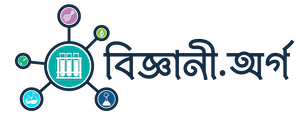
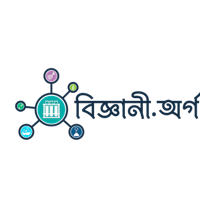
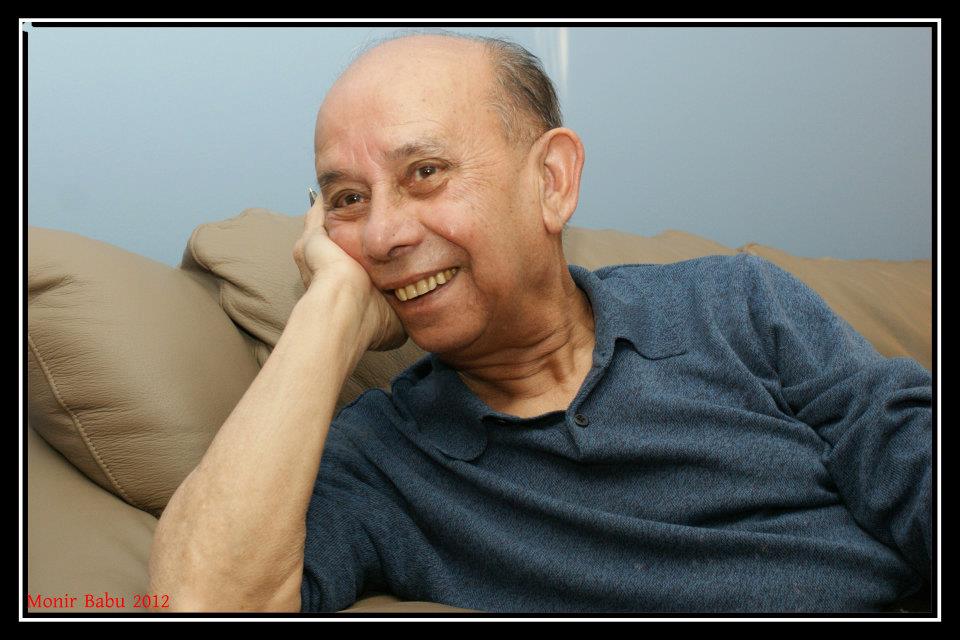



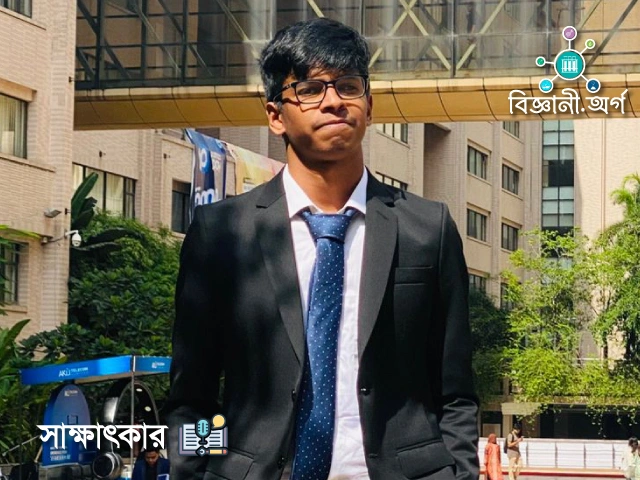
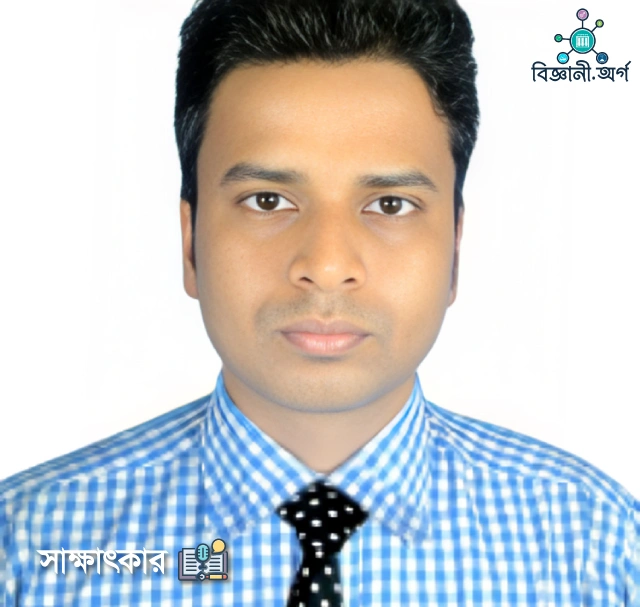
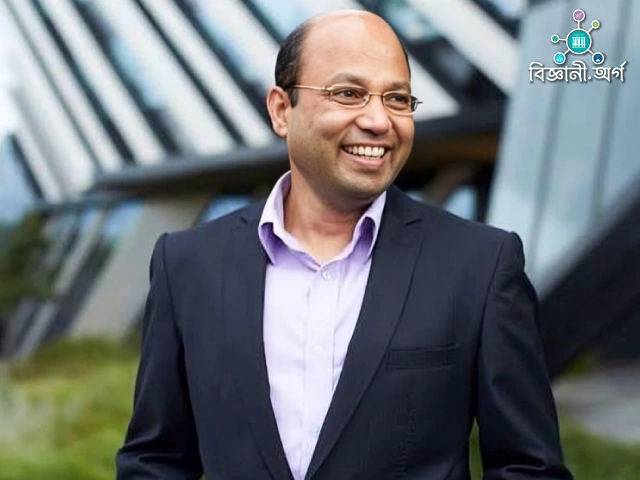
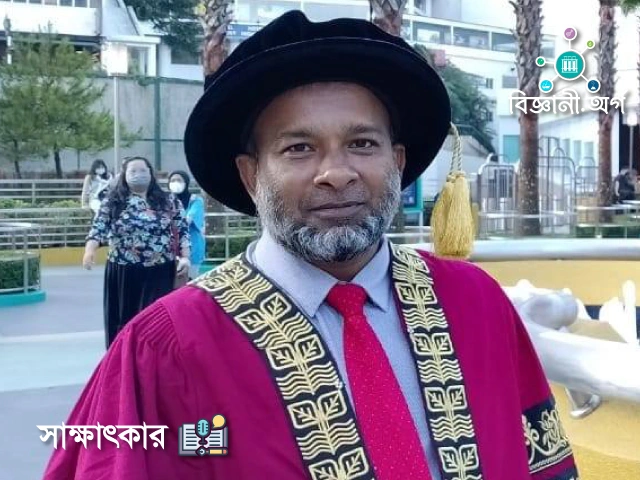
Right here is the perfect web site for anyone who would like to find out about this topic.
You realize a whole lot its almost tough to argue with you (not that I personally will need to…HaHa).
You certainly put a brand new spin on a topic that has been written about for ages.
Wonderful stuff, just excellent!
AMAZING AND WONDERFUL.